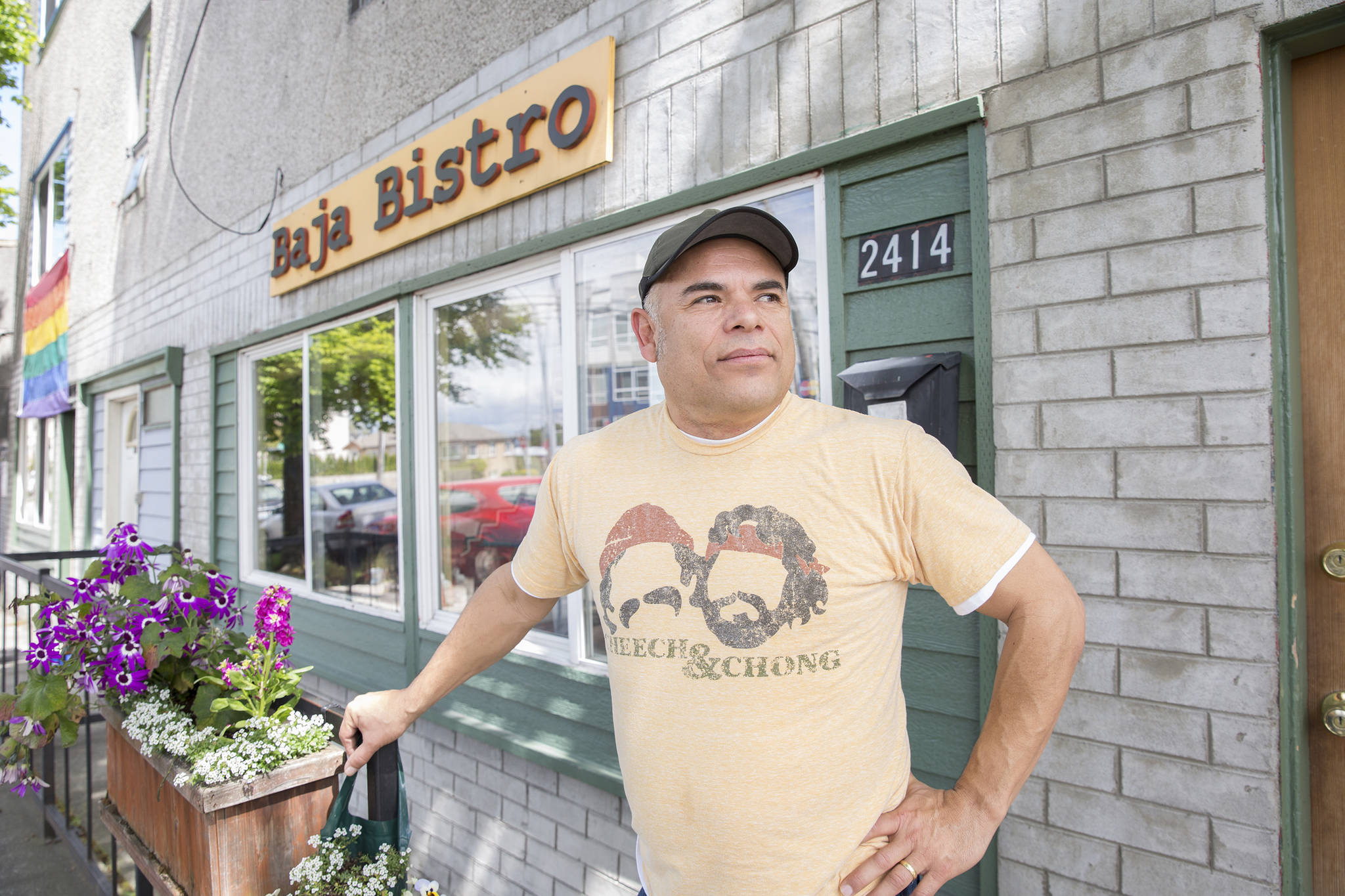Politics have been a part of Kaya Axelsson’s life for as long as she can remember. “My grandma always said that politics was not a career, but a lifestyle,” she says. “She read a newspaper to me every morning.”
She started her activism early as well. “I guess technically my mom door-knocked with me on her back when I was an infant with the League of Conservation Voters.” At age 8, Axelsson protested “restrictive and overprotective playground rules” by staging a sit-in with her classmates. “I got called into the principal’s office. She actually negotiated demands with me and another kid, which probably did a lot to develop my political and strategic intuition about how to leverage power with little authority.” And at 16, Axelsson interned for a summer with nonprofit The Washington Bus.
Axelsson, then, was no stranger to the level of commitment required to affect change and fight injustice by the time Trump was elected president. “Donald Trump attempts to sell an ostentatious political brand, built on the principle of greed,” she says. “His success relies on a culture of division and disdain between racial and political groups.” So while others were in a state of shock, Axelsson got to work. “You have to fight, because that is a survival mechanism,” she says. “In a way, you feel like you’re doing something, even if it’s small.”
The night of the election, she and a couple of friends stayed up all night, sitting on her couch and hatching a plan for a new activist group that could fight back against the new administration. A few nights later, almost 1,000 people showed up to the old Value Village on Capitol Hill for the first meeting of the resulting organization, the Neighborhood Action Coalition. There were so many people that they had to spill into local bars and parks. “We wanted them to talk to each other,” Axelsson says. “We’re fighting isolationism, because that’s what the fear of someone like Trump does to people. We broke them up into neighborhood groups and some just formed on the spot. Some of them just started meeting on their own. Then we had a follow-up event and they solidified, making their own Facebook groups and listservs.”
But the Neighborhood Action Coalition isn’t just interested in railing against Trump. Last week, for instance, the grassroots organization delved into municipal politics by organizing, in partnership with Seattle Weekly and other community organizations, a candidate forum. More than 200 people showed up. “It’s really decentralized,” she says. “Something goes on every day that was started by a NAC.”
This kind of activism doesn’t pay the bills, Axelsson says, so you can find her slinging coffee, biscuits, and gravy at the Square Knot to make ends meet. “I had worked for nonprofits on campaigns for a long time,” she says. “If you do good at those jobs, they really require all of your focus, and I want to be politically independent to drive community organizing. I take early-morning shifts and late-night shifts, and then I have time for meetings during the day.”
A native Seattleite, Axelsson says she was accustomed to seeing same-sex couples, but did not come out until college. She identifies as “queer, because it gives you the freedom and fluidity to not have to be stuck in a box of sexual orientation. That comes with a lot of weight around your identity, and I think sometimes gives people a crisis of identity if they step out of that box.”
Axelsson says that despite the advancement of LGBTQ rights in recent decades, she sees much more work to be done for and within the community. “It’s just true that gay male culture dominates,” she says. “I mean, Ed Murray is supposed to be our token gay politician, and I don’t think he represents poor, lesbian, and queer folks.”
Axelsson also credits her queerness for her current approach to activism. Studying political science at the University of Southern California, she witnessed how being trans or not falling in with the gender binary can bring “an incredible amount of vitriol out of people.” She recalls an incident on a train with gender-nonconforming friends and a passenger yelling and threatening violence. “I chose to take back space in that moment by kissing my friends,” she says. Axelsson describes this as her first foray into direct action, or activity “that steps outside of the bounds of formal engagement with the political process.”
It was a revelation. Now Axelsson is helping to organize NAC, alongside Gender Justice League and Washington Won’t Discriminate, in a campaign against those who are gathering signatures for I-1552, which would repeal nondiscrimination laws for transgender people in Washington. “We’ve been driving out to wherever we think there might be people who want to signature-gather, and we’ve been holding up signs to provide a counter-narrative,” she says. “If people want to be good allies this month, then if they see a signature-gatherer for 1552, they should have a conversation about that.”
Despite Axelsson’s seemingly boundless energy and dedication to change, she too grows weary in these fraught times. She says the key is to “think about meaningful and strategic intervention that doesn’t fall into some kind of tribal tactical camp of how to engage in politics.
“Sometimes I’m going to work through formal processes and sometimes I’m going to work outside of them,” she adds, “but I maintain that creative spirit to really think about how I want to show up and not just a reaction.”
news@seattleweekly.com








